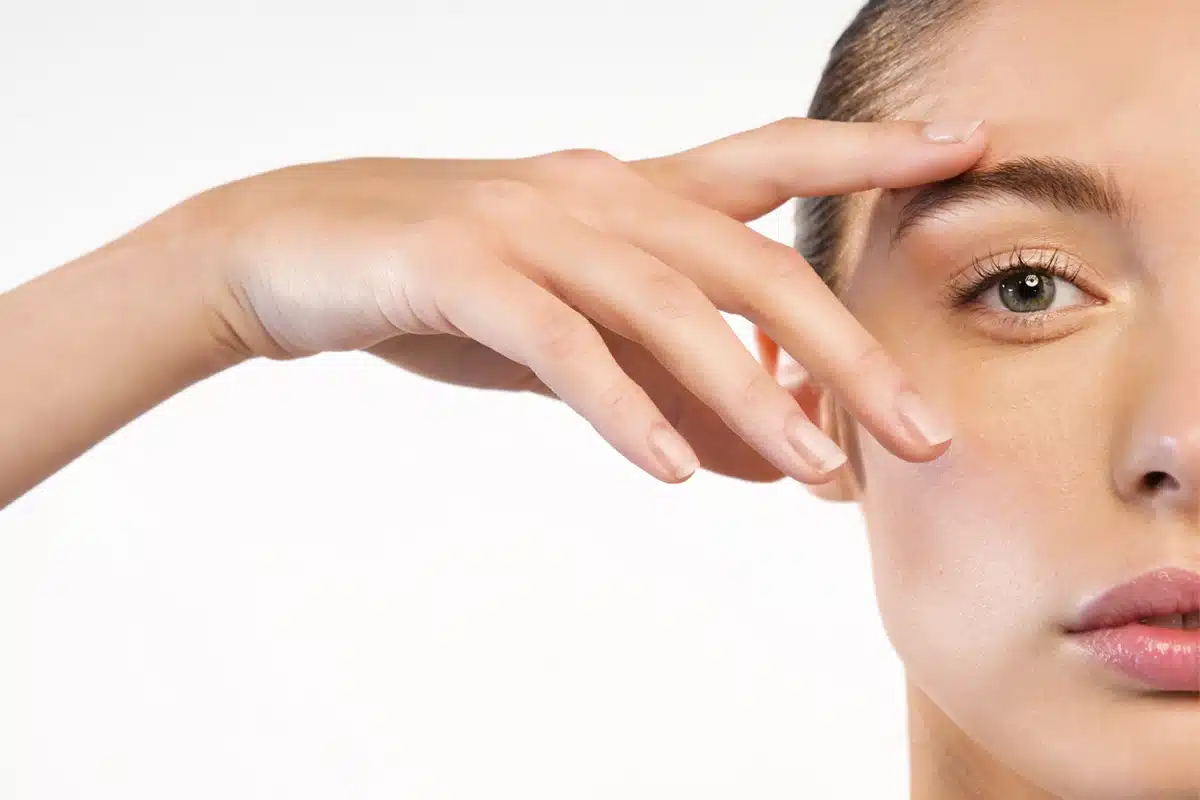Ever thought about what it’s really like after getting blepharoplasty? It can totally freshen up your look, but there’s one thing almost everyone deals with—swelling and bruising. So, how long does it stick around? And is there anything you can do to help it go away faster?
If you’re thinking about getting the surgery or just had it done, this guide’s for you. Knowing what to expect and how to take care of yourself can really help you heal better and feel more comfortable. Let’s break it down.

How Long Does Swelling Last After Eyelid Surgery?
Most patients experience the most noticeable swelling within the first 48–72 hours following surgery. You can typically expect significant improvement within 10–14 days—enough to feel confident stepping out in public. However, minor residual swelling can persist for several weeks, gradually resolving over a span of up to 3–4 months. Complete healing varies from person to person, but by the 6-month mark, all swelling should be gone.
Eyelid Swelling Timeline after Blepharoplasty
Swelling is a completely normal part of the healing process after blepharoplasty. Knowing what to expect at each stage can help ease your mind and keep your recovery on track. Here’s how things usually go — from day one to six months post-surgery:
Phase 1: Day 1 – Right After Surgery
This is when the swelling is at its worst. Your eyelids will look super puffy, maybe even bruised, and might feel tight or sore. Don’t worry — this is totally normal.
What to expect:
- Puffy, swollen eyelids
- Bruising (purple or red marks)
- A tight or sore feeling
How you might feel:
It might be kind of a shock when you look in the mirror — but don’t panic. This part doesn’t last long.
Helpful tips:
- Use cold packs gently (10–15 minutes at a time, wrapped in a towel)
- Keep your head propped up, even when sleeping — it helps with drainage
- Drink plenty of water to flush out extra fluids
- Rest as much as possible and take your meds on time
- Stick to soft, easy foods
Good to know:
This is the toughest phase. Swelling can look dramatic, but it’s temporary — just give your body time.
Phase 2: Days 2–7 – The First Week
Things are still swollen, but not as bad as day one. Bruising might start changing color — that’s a good sign of healing.
What to expect:
- Swelling is still there but slowly going down
- Bruising fades into green or yellow
- You’ll feel more like yourself
How you might feel:
You might feel tired or a little sore days after surgery, but things are starting to improve. Don’t rush it — keep taking it easy.
Helpful tips:
- Keep using cold compresses for the first couple of days
- Avoid bending over, lifting heavy stuff, or working out
- Try not to stare at screens for too long — give your eyes a break
- Stay hydrated and eat healthy meals
- Keep your head elevated when resting
Good to know:
You’re past the worst part. Healing is underway — just be patient and consistent with care.
Phase 3: Week 2 – Two Weeks Later
Now you’re starting to look more like yourself. Swelling is way down, and bruises are mostly gone.
What to expect:
- Mild swelling that’s barely noticeable
- Any leftover bruising is easy to cover with makeup
- Eyes are looking more natural
How you might feel:
Weeks after surgery, you’ll probably feel comfortable going out without sunglasses. Confidence is coming back!
Helpful tips:
- Be gentle with your skin — no rubbing
- Still keep your head slightly elevated when resting
- Don’t jump back into intense workouts just yet
- Ask your doctor if gentle massage is safe — it can help drain leftover puffiness
- Stick with healthy foods and keep avoiding salty snacks
Good to know:
You’re halfway there. The swelling is mostly gone, and you’ll keep looking better each week.
Phase 4: Weeks 3–4 – Getting Back to Normal
At this point, you’re looking good. Any remaining swelling is very minor and easy to miss.
What to expect:
- Eyes look smooth and more defined
- Tiny bit of puffiness might still be there
- You feel pretty much back to normal
How you might feel:
Like yourself again — maybe even better. You’re probably not thinking about the surgery much anymore.
Helpful tips:
- Continue gentle skincare
- Wear sunglasses when outside to protect healing skin
- Keep up hydration and balanced meals
- Light activity is usually okay now, but check with your surgeon first
Good to know:
Most people are back to daily life by now. That tiny bit of swelling? It’ll fade away soon.
Phase 5: 2 Months – Almost Fully Healed
Now we’re talking. Your eyes are almost fully healed, and the results really show.
What to expect:
- Any leftover swelling is barely noticeable
- Final results are starting to shine through
- You feel normal and confident
How you might feel:
Happy with how everything turned out. Most people just notice how fresh or awake you look.
Helpful tips:
- Use sunscreen around your eyes if you’re going outside
- Continue moisturizing gently
- If you were told to massage the area, keep doing it regularly
- Keep avoiding anything that irritates your eyes (like smoke or dust)
Good to know:
This is the final stretch. Your results are nearly set — you’re looking great.
Phase 6: 6 Months – Fully Healed
This is it — you’re fully healed and enjoying the results.
What to expect:
- No more swelling at all
- Scars (if any) are super faded
- Eyes look fresh, natural, and balanced
How you might feel:
Relaxed, confident, and glad you went through with it.
Helpful tips:
- Keep using sunscreen daily
- Stick with your skincare routine
- Stay healthy and hydrated — it all helps long term
Good to know:
You’ve made it! Your results are stable, natural-looking, and meant to last. Nothing left to do but enjoy.
What are some potential complications during the Blepharoplasty Surgery Healing Process?
While most patients heal smoothly after eyelid surgery, it’s important to stay alert for signs that something might not be progressing as expected. Recognizing potential complications early allows you to seek prompt medical attention and avoid more serious issues. Below are a few things to watch for during your Eyelid surgery recovery process:
- Excessive Bleeding : A small amount of bleeding is normal after surgery, but persistent or heavy bleeding is not. If you notice blood soaking through your bandages or dripping from the incision sites, contact your surgeon immediately.
- Vision Changes : Temporary blurred vision can occur due to swelling or ointment, but double vision, loss of vision, or a sudden increase in visual disturbances should be addressed right away.
- Asymmetry or Irregular Healing : Minor asymmetry is common in early healing, but if one eye appears significantly more swollen or painful, it could indicate a deeper issue that needs evaluation.
- Severe Pain : Discomfort is expected, but intense or worsening pain may signal complications like hematoma or infection and should be reported to your doctor.
- Infection : Though relatively rare, infections can develop if bacteria enter the incision sites. Left untreated, an infection can delay healing and compromise your results.
What are the Signs of Infection After Blepharoplasty Surgery?
Infections after blepharoplasty surgery are uncommon but serious, so recognizing the signs early is crucial. Here are key indicators that you may be developing an infection:
- Redness spreading around the incision
- Increasing warmth or tenderness in the area
- Thick or discolored discharge
- Fever or chills
- A foul odor from the incision site
If you notice any of these symptoms, contact your surgeon immediately. Prompt treatment can prevent more serious complications and help you stay on track with your recovery process. Prompt treatment can prevent more serious complications and help you stay on track with your recovery.
Blepharoplasty Before and After Photos
* All patients are unique and individual results may vary.
Other Blepharoplasty Recovery Tips
Swelling care is important, but there are a few more things you can do to help your body heal faster and feel better after surgery. Here’s what really helps:
Have a Healthy Diet
What you eat matters. Try to load up on fruits, veggies, lean meats, and stuff like salmon or walnuts (they’re good fats). Skip salty snacks — too much salt makes you hold onto water, which can make swelling worse.
Avoid smoking and alcohol
Smoking and drinking slow down healing — big time. Smoking messes with your blood flow, and alcohol can dehydrate you and make swelling worse. Try to avoid both for at least 2 weeks before and after surgery. Your body will thank you.
Avoid Blood Thinners
Some meds and vitamins (like aspirin, ibuprofen, vitamin E, or certain herbal stuff) can make you bruise more easily. Always tell your doctor what you’re taking, even if it seems harmless. They’ll let you know what’s safe.
Follow your surgeon’s instructions
Seriously — this one’s huge. Your surgeon gives you a recovery plan for a reason. Stick to it. Take your meds, go to your check-ups, and don’t wing it. If you’re not sure about something, just ask. Better safe than sorry.
How to Choose a Plastic Surgeon for Your Blepharoplasty
Choosing the right plastic surgeon can make all the difference in your blepharoplasty results. An experienced specialist will not only minimize your risk of complications but also ensure a smoother recovery and natural-looking outcome. With something as delicate as eyelid surgery, expertise and precision truly matter.
Dr. Joanna Kam is double-board certified in facial plastic surgery and otolaryngology-head and neck surgery. Renowned for her meticulous technique and aesthetic eye, Dr. Kam specializes in facial rejuvenation, cosmetic rhinoplasty, and reconstruction after skin cancer removal. Ready to feel more confident in your appearance? Call us at 856-565-2903 or visit our contact page to schedule your consultation today.



